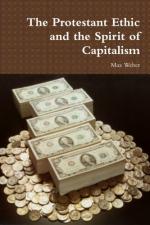
|
| Name: _________________________ | Period: ___________________ |
This test consists of 15 multiple choice questions and 5 short answer questions.
Multiple Choice Questions
1. What makes harvesting the most productive?
(a) Hard work.
(b) Doing it at the right time.
(c) Singular plans.
(d) Having lots of help.
2. Who said that 'Time is Money.'?
(a) Benjamin Franklin.
(b) Theodore Roosevelt.
(c) Winston Churchill.
(d) Julius Caesar.
3. What did Montesquieu say England was successful in?
(a) Religion.
(b) Liberty.
(c) Business.
(d) All of these.
4. What did Frederick I of Prussia tolerate about the religion he said was indispensable?
(a) Their refusal to be in the military.
(b) Their refusal to pay taxes.
(c) Their refusal to wear normal clothing.
(d) Their refusal to work on Sunday.
5. What did the Reformation work to bring about?
(a) New availability of information.
(b) A new control.
(c) A new climate.
(d) New rules to follow.
6. What caused the Catholic church to be called a certain word int he 15th century?
(a) It was too exclusive to the rich.
(b) It was too far from the real people.
(c) It was too easy for sinners to repent.
(d) It was far too hard to repent.
7. Where do most Capitalism leaders get their money?
(a) Working.
(b) Inheritance.
(c) Grants.
(d) Business trades.
8. When are low wages most effective?
(a) When there are not enough jobs.
(b) When there are unskilled workers.
(c) When food prices are low.
(d) When there are wars.
9. When does the author say his list of do's can be used?
(a) All of these.
(b) In social circles.
(c) In personal lives.
(d) In business.
10. What does the author say a man does when he is idle?
(a) Offends God.
(b) Dies a little.
(c) Wastes all he has.
(d) Throws money away.
11. What does the author say Protestant religions always have a spirit of?
(a) Success.
(b) Hard work.
(c) Kindness.
(d) Anger.
12. Who wrote the definition of the spirit of capitalism used by the author?
(a) Henry Ford.
(b) Benjamin Franklin.
(c) Andrew Carnegie.
(d) Thomas Jefferson.
13. What part of the population most embraced the Catholic church?
(a) The wealthy.
(b) The middle class.
(c) The nobles.
(d) The poor.
14. How is the percentage of Catholic graduates in Bavaria in relation to Protestants?
(a) They are much less.
(b) They are lagging.
(c) They are the same.
(d) They are ahead.
15. What did the Reformation NOT get rid of?
(a) Control over life.
(b) Ethical dilemmas.
(c) Lack of education.
(d) Religious ideals.
Short Answer Questions
1. Where has Capitalism been the most successful?
2. What structure in government is most affected by Capitalism?
3. How do Calvinists see work?
4. What did Medieval Capitalistic societies lack?
5. What did the highly developed sectors of the 16th century have in common?
|
This section contains 437 words (approx. 2 pages at 300 words per page) |

|




